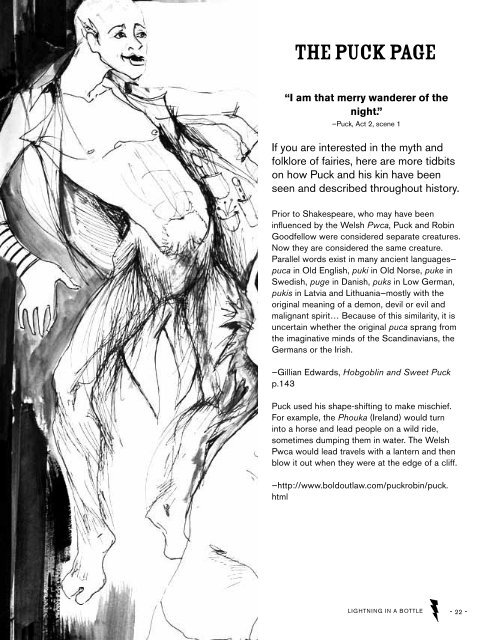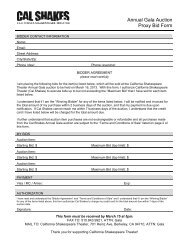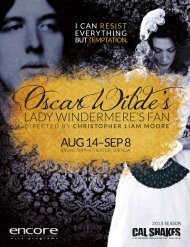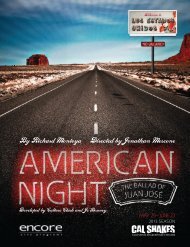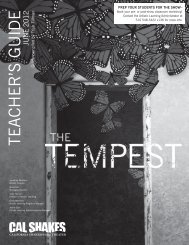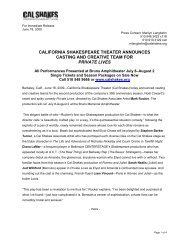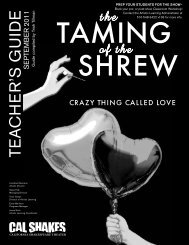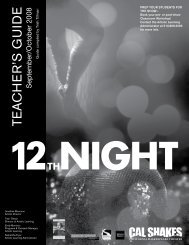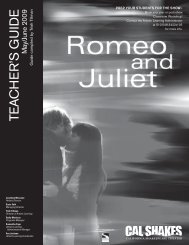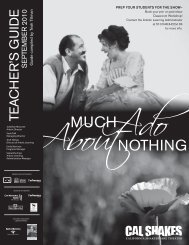A Midsummer Night's Dream - California Shakespeare Theater
A Midsummer Night's Dream - California Shakespeare Theater
A Midsummer Night's Dream - California Shakespeare Theater
Create successful ePaper yourself
Turn your PDF publications into a flip-book with our unique Google optimized e-Paper software.
The Puck Page<br />
“I am that merry wanderer of the<br />
night.”<br />
—Puck, Act 2, scene 1<br />
If you are interested in the myth and<br />
folklore of fairies, here are more tidbits<br />
on how Puck and his kin have been<br />
seen and described throughout history.<br />
Prior to <strong>Shakespeare</strong>, who may have been<br />
influenced by the Welsh Pwca, Puck and Robin<br />
Goodfellow were considered separate creatures.<br />
Now they are considered the same creature.<br />
Parallel words exist in many ancient languages—<br />
puca in Old English, puki in Old Norse, puke in<br />
Swedish, puge in Danish, puks in Low German,<br />
pukis in Latvia and Lithuania—mostly with the<br />
original meaning of a demon, devil or evil and<br />
malignant spirit… Because of this similarity, it is<br />
uncertain whether the original puca sprang from<br />
the imaginative minds of the Scandinavians, the<br />
Germans or the Irish.<br />
—Gillian Edwards, hobgoblin and Sweet Puck<br />
p.143<br />
Puck used his shape-shifting to make mischief.<br />
For example, the Phouka (Ireland) would turn<br />
into a horse and lead people on a wild ride,<br />
sometimes dumping them in water. The Welsh<br />
Pwca would lead travels with a lantern and then<br />
blow it out when they were at the edge of a cliff.<br />
—http://www.boldoutlaw.com/puckrobin/puck.<br />
html<br />
LIGHTNING IN A BOTTLE<br />
- 22 -


